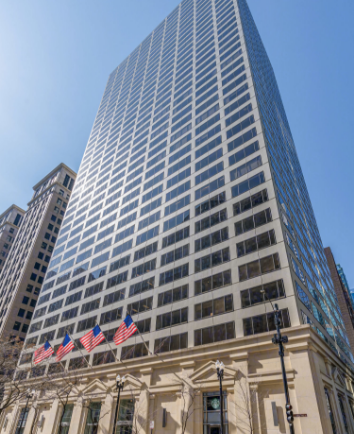Lawyers for Workplace Accidents & Injuries

Lawyers for Workplace Accidents & Injuries
Nearly 3 million people worldwide die of work-related accidents and diseases every year.
Serious injuries can occur in even the safest of workplaces. Employees who sustain injuries on the job are entitled to benefits under their workers’ compensation system. However, in many states, injured employees utilizing that system are then prohibited from suing their employer for additional damages.
The payout for these claims is often less than what would be awarded in a personal injury claim. Further, the pressure from a personal injury lawsuit could result in implementation of better safety standards. If you were injured on the job, don’t delay in contacting a top work injury lawyer: Susan E. Loggans.
Retain a Workers’ Compensation Lawyer
If you have been injured on the job or a loved one was killed while working, it’s important to hire experienced workers’ compensation attorneys immediately. They can help you navigate your legal options to ensure you get complete and fair compensation that covers all of your current and future needs.
Call (312) 201-8600 or visit our contact page to schedule your free, no-obligation case evaluation with our work-related injury attorneys. We represent clients on a contingency fee basis—meaning you pay nothing unless you win.
Overview of Chicago Work Injury Lawyer
Types of Work Injuries
FAQs
What to Do After a Workplace Accident
Find the Right Work Injury Lawyer
Types of Work Injuries
Some of the most common kinds of workplace injury claims that Susan E. Loggans & Associates handles include, but are not limited to:
Amputations
An amputation is the surgical removal of all or part of a person’s limb after serious injury. Depending on the body part removed, the victim may be permanently unable to work, causing a series of financial setbacks.
Electrocution
A person can be electrocuted when coming into contact with an electricity source. The severity of an electrocution or shock injury is dependent upon the type of clothing the victim was wearing, the length of time exposed to the current, and the power of the current.

Lacerations/Abrasions
Abrasions are skin wounds in which the surface layers of the skin are broken. A common example of a minor abrasion is a skinned knee resulting from a fall. Lacerations are more severe in nature and are typically caused by blunt trauma, such as a knife wound.
Falls
Falling is a leading cause of workplace injuries that can result in full disability, partial disability, or even death. Common injuries from falls include head injuries, lacerations, and back injuries.
Fallen Objects
Fallen objects were a leading cause of disabling work injuries in 2020. Fallen objects can cause a variety of injuries, including lacerations, traumatic brain injuries (TBIs), and psychological trauma.
Machinery Accidents
Many jobs require workers to operate large, complex pieces of machinery. Employers have both an interest and an obligation to ensure that such machines are operated properly, but occasional malfunctions or mistakes can lead to catastrophic injuries.
Construction Accidents
Construction sites can be incredibly dangerous. The “Fatal Four” OSHA injuries for construction workers are falls, struck-by (struck by nearby objects), caught-in/between (caught between objects), and electrocutions.
Frequently Asked Questions
What is workers’ compensation?
Workers’ compensation, or workers’ comp, is a no-fault system designed to quickly provide benefits for people who have been injured at work. Employees who sustain injuries on the job are entitled to workers’ comp benefits—including coverage of medical bills—regardless of who was at fault.
How much can I receive in damages from a workers’ compensation claim?
Compensation awarded in workers’ compensation cases can be extremely limited. Further, victims receiving workers’ compensation are prohibited from suing their employer for additional damages.
In some cases, employees may be able to file claims against other negligent third parties that could be liable for the harm caused. Depending on the specific incident in question, multiple third parties could bear some liability for a worker’s injuries. Slip and fall accidents, defective products, and car accidents on the job are some of the most frequent scenarios in which third parties can be liable for an employee’s injuries.
Common types of third-party claims may include:
- Equipment manufacturers
- Landowners
- Other drivers
- Maintenance providers
- Distributors/suppliers
- Contractors/subcontractors
What is the difference between general liability and workers’ comp?
Injured workers typically can’t sue their employer for cases involving negligence. Those cases would fall under workers’ compensation benefits.
However, if intentional harm was caused in the workplace, a lawsuit would be an appropriate course of action. Personal injury claims can warrant much larger payouts, as they can also include damages such as emotional pain and suffering.
If you are even slightly unsure of whether to sue your employer or file a workers’ comp claim, we strongly advise that you call us for a free consultation. An experienced lawyer can help you make an informed decision based on the unique details of your case.
What is the statute of limitations for filing a workers’ compensation claim in Illinois?
Under the Illinois Workers’ Compensation Act, an individual has 3 years from the date of the injury to file a claim for benefits. This also includes filing an Application for Adjustment of Claim, which may be necessary if there are unexpected expenses or long-term needs that arise due to the injury.
What to Do After a Workplace Accident
People who sustained a serious job injury should do the following:
- Gather evidence of the accident or of the injury itself.
- Note all medical expenses and other financial burdens related to the incident.
- Keep non-financial records of medical treatment.
- Not talk to insurance companies and avoid starting the workers’ compensation process until retaining a top work injury attorney.
- Seek the help of an experienced personal injury law firm who can help you secure a winning verdict.

Find an Experienced Work Injury Lawyer with Susan E. Loggans & Associates
We all have an expectation of a safe working environment. But even the safest of workplaces can result in injuries on the job. Work injuries can not only cause emotional suffering, but have the potential to bring lifelong difficulties.
If you or your loved one sustained an injury on the job, it is in your best interest to seek legal counsel immediately. Our law firm has a high level of expertise in workers’ compensation laws and fighting big insurance companies. We can help you find the best option for receiving maximum compensation for lost wages and damages incurred.
Call (312) 201-8600 or visit our contact page to schedule a free, no-obligation consultation with our experts.
